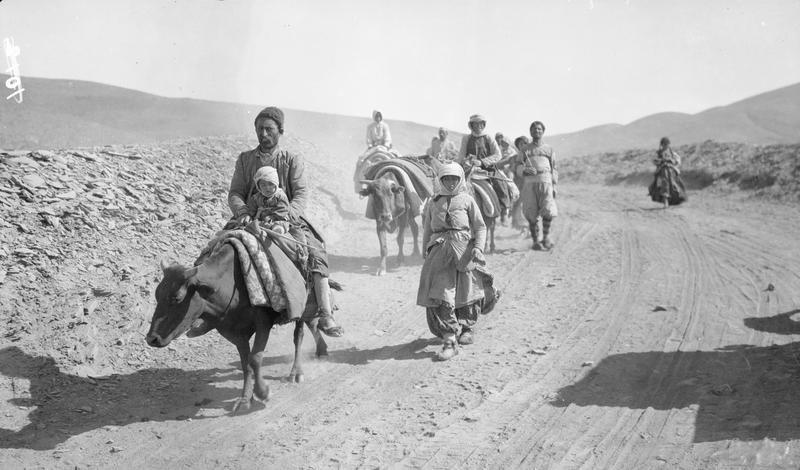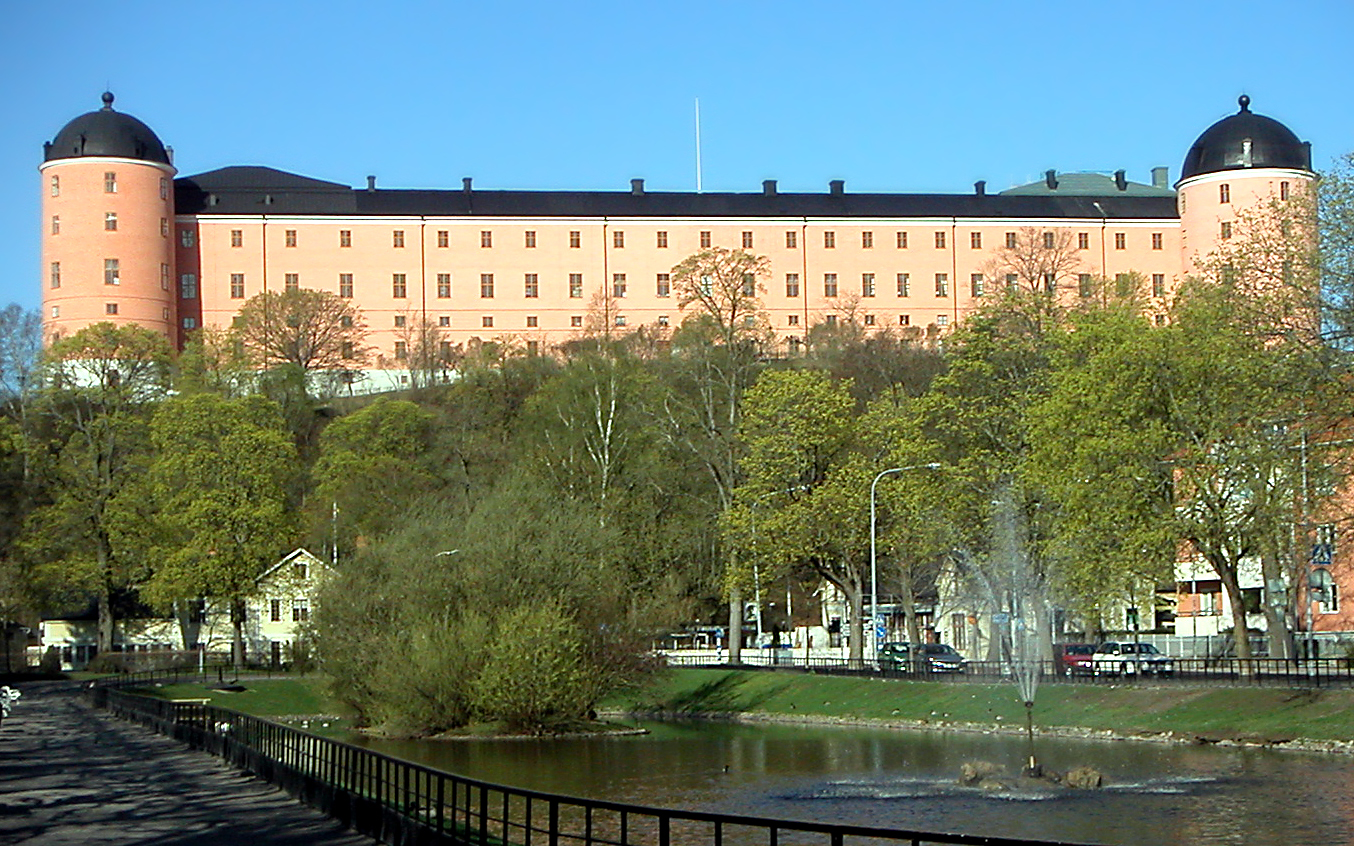|
David Gaunt
David Gaunt (born 1944 in London) is a historian and professor at Södertörn University's Centre for Baltic and East European Studies and Member of Academia Europaea. Gaunt's book about the Assyrian genocide The Sayfo (, ), also known as the Seyfo or the Assyrian genocide, was the mass murder and deportation of Assyrian/Syriac Christians in southeastern Anatolia and Persia's Azerbaijan province by Ottoman forces and some Kurdish tribes during ..., ''Massacres, Resistance, Protectors'', was described as "the most important book that has been published in recent years". Works * * *"The property and kin relationships of retired farmers in northern and central Europe" in ''Family forms in historic Europe'', 1983 * * * * * * *"The Ottoman Treatment of the Assyrians" In: A question of genocide : Armenians and Turks at the end of the Ottoman Empire / dRonald Grigor Suny, Fatma Müge Goçek, Norman M. Naimark, Oxford: Oxford University Press, 2011, p. 244-259 * *"Failed ... [...More Info...] [...Related Items...] OR: [Wikipedia] [Google] [Baidu] |
Södertörn University
Södertörn University (, abbreviated as SH), is a public university college () located in Flemingsberg in Huddinge Municipality, and the larger area called Södertörn, in Stockholm County, Sweden. In 2013, it had about 13,000 full-time and part-time students. The campus area in Flemingsberg hosts the main campus of SH, several departments of the Karolinska Institutet, and the School of Technology and health of the Royal Institute of Technology (KTH). The Karolinska University Hospital, Huddinge (formerly Huddinge Hospital), is also located there. The university is unique in the sense that it is the only higher educational institution in Sweden that teaches and researches philosophical schools such as German idealism, existentialism, deconstruction as well as critical theory and other views which are excluded from the traditional Anglo-Saxon analytical philosophy. History Södertörn University was established as a university college (''högskola'') in 1996 following a parli ... [...More Info...] [...Related Items...] OR: [Wikipedia] [Google] [Baidu] |
Member Of Academia Europaea
Membership of the Academia Europaea (MAE) is an award conferred by the Academia Europaea to individuals that have demonstrated "sustained academic excellence". Membership is by invitation only by existing MAE and judged during a peer review selection process. Members are entitled to use the post-nominal letters ''MAE''. Members of the Academia Europaea New members have been announced annually since 1988. For a more complete list see :Members of Academia Europaea, Members of Academia Europaea.. Some Members of the Academia Europaea have received very prestigious awards, medals and prizes, such as: * The Nobel Prize e.g. Christiane Nüsslein-Volhard (1995, Physiology), Arvid Carlsson (2000, Physiology or Medicine), Paul Nurse (2001, Physiology or Medicine), Tim Hunt (2001, Physiology or Medicine), Kurt Wüthrich (2002, Chemistry), John Sulston (2002, Physiology or Medicine), Sydney Brenner 2002, Physiology or Medicine, Aaron Ciechanover (2004, Chemistry), Roy J. Glauber (2005, Physics ... [...More Info...] [...Related Items...] OR: [Wikipedia] [Google] [Baidu] |
Assyrian Genocide
The Sayfo (, ), also known as the Seyfo or the Assyrian genocide, was the mass murder and deportation of Assyrian/Syriac Christians in southeastern Anatolia and Persia's Azerbaijan province by Ottoman forces and some Kurdish tribes during World War I. The Assyrians were divided into mutually antagonistic churches, including the Syriac Orthodox Church, the Assyrian Church of the East, and the Chaldean Catholic Church. Before World War I, they largely lived in mountainous and remote areas of the Ottoman Empire and Persia, some of which were effectively stateless. The Ottoman Empire's nineteenth-century centralization efforts led to increased violence and danger for the Assyrians. Mass killing of Assyrian civilians began during the Ottoman occupation of Azerbaijan from January to May 1915, during which massacres were committed by Ottoman forces and pro-Ottoman Kurds. In Bitlis province, Ottoman troops returning from Persia joined local Kurdish tribes to massacre the loca ... [...More Info...] [...Related Items...] OR: [Wikipedia] [Google] [Baidu] |
1944 Births
Events Below, the events of World War II have the "WWII" prefix. January * January 2 – WWII: ** Free France, Free French General Jean de Lattre de Tassigny is appointed to command First Army (France), French Army B, part of the Sixth United States Army Group in North Africa. ** Landing at Saidor: 13,000 US and Australian troops land on Papua New Guinea in an attempt to cut off a Japanese retreat. * January 8 – WWII: Philippine Commonwealth troops enter the province of Ilocos Sur in northern Luzon and attack Japanese forces. * January 11 ** United States President Franklin D. Roosevelt proposes a Second Bill of Rights for social and economic security, in his State of the Union address. ** The Nazi German administration expands Kraków-Płaszów concentration camp into the larger standalone ''Konzentrationslager Plaszow bei Krakau'' in occupied Poland. * January 12 – WWII: Winston Churchill and Charles de Gaulle begin a 2-day conference in Marrakech. * Janua ... [...More Info...] [...Related Items...] OR: [Wikipedia] [Google] [Baidu] |
Living People
Purpose: Because living persons may suffer personal harm from inappropriate information, we should watch their articles carefully. By adding an article to this category, it marks them with a notice about sources whenever someone tries to edit them, to remind them of WP:BLP (biographies of living persons) policy that these articles must maintain a neutral point of view, maintain factual accuracy, and be properly sourced. Recent changes to these articles are listed on Special:RecentChangesLinked/Living people. Organization: This category should not be sub-categorized. Entries are generally sorted by family name In many societies, a surname, family name, or last name is the mostly hereditary portion of one's personal name that indicates one's family. It is typically combined with a given name to form the full name of a person, although several give .... Maintenance: Individuals of advanced age (over 90), for whom there has been no new documentation in the last ten ... [...More Info...] [...Related Items...] OR: [Wikipedia] [Google] [Baidu] |
Academic Staff Of Södertörn University
An academy (Attic Greek: Ἀκαδήμεια; Koine Greek Ἀκαδημία) is an institution of tertiary education. The name traces back to Plato's school of philosophy, founded approximately 386 BC at Akademia, a sanctuary of Athena, the goddess of wisdom and skill, north of Athens, Greece. The Royal Spanish Academy defines academy as scientific, literary or artistic society established with public authority and as a teaching establishment, public or private, of a professional, artistic, technical or simply practical nature. Etymology The word comes from the ''Academy'' in ancient Greece, which derives from the Athenian hero, ''Akademos''. Outside the city walls of Athens, the gymnasium was made famous by Plato as a center of learning. The sacred space, dedicated to the goddess of wisdom, Athena, had formerly been an olive grove, hence the expression "the groves of Academe". In these gardens, the philosopher Plato conversed with followers. Plato developed his sessions ... [...More Info...] [...Related Items...] OR: [Wikipedia] [Google] [Baidu] |
Historians From London
A historian is a person who studies and writes about the past and is regarded as an authority on it. Historians are concerned with the continuous, methodical narrative and research of past events as relating to the human species; as well as the study of all history in time. Some historians are recognized by publications or training and experience.Herman, A. M. (1998). Occupational outlook handbook: 1998–99 edition. Indianapolis: JIST Works. Page 525. "Historian" became a professional occupation in the late nineteenth century as research universities were emerging in Germany and elsewhere. Objectivity Among historians Ancient historians In the 19th century, scholars used to study ancient Greek and Roman historians to see how generally reliable they were. In recent decades, however, scholars have focused more on the constructions, genres, and meanings that ancient historians sought to convey to their audiences. History is always written with contemporary concerns and ancient hist ... [...More Info...] [...Related Items...] OR: [Wikipedia] [Google] [Baidu] |
British Emigrants To Sweden
British may refer to: Peoples, culture, and language * British people, nationals or natives of the United Kingdom, British Overseas Territories and Crown Dependencies. * British national identity, the characteristics of British people and culture * British English, the English language as spoken and written in United Kingdom of Great Britain and Northern Ireland and, more broadly, throughout the British Isles * Celtic Britons, an ancient ethno-linguistic group * Brittonic languages, a branch of the Insular Celtic language family (formerly called British) ** Common Brittonic, an ancient language Other uses *People or things associated with: ** Great Britain, an island ** British Isles, an island group ** United Kingdom, a sovereign state ** British Empire, a historical global colonial empire ** Kingdom of Great Britain (1707–1800) ** United Kingdom of Great Britain and Ireland (1801–1922) * British Raj, colonial India under the British Empire * British Hong Kong, colon ... [...More Info...] [...Related Items...] OR: [Wikipedia] [Google] [Baidu] |
Members Of Academia Europaea
Member may refer to: * Military jury, referred to as "Members" in military jargon * Element (mathematics), an object that belongs to a mathematical set * In object-oriented programming, a member of a class ** Field (computer science), entries in a database ** Member variable, a variable that is associated with a specific object * Limb (anatomy), an appendage of the human or animal body ** Euphemism for penis * Structural component of a truss, connected by nodes * User (computing), a person making use of a computing service, especially on the Internet * Member (geology), a component of a geological formation * Member of parliament * The Members The Members is a British punk rock, punk band that originated in Camberley, Surrey, England. In the UK, they are best known for their single "The Sound of the Suburbs", reaching No. 12 in the UK Singles Chart in 1979, and in Australia, "Radio" ..., a British punk rock band * Meronymy, a semantic relationship in linguistics * Church m ... [...More Info...] [...Related Items...] OR: [Wikipedia] [Google] [Baidu] |
Uppsala University Alumni
Uppsala ( ; ; archaically spelled ''Upsala'') is the capital of Uppsala County and the fourth-largest city in Sweden, after Stockholm, Gothenburg, and Malmö. It had 177,074 inhabitants in 2019. Located north of the capital Stockholm, it is also the seat of Uppsala Municipality. Since 1164, Uppsala has been the ecclesiastical centre of Sweden, being the seat of the Archbishop of the Church of Sweden. Uppsala is home to Scandinavia's largest cathedral – Uppsala Cathedral, which was the frequent site of the coronation of the Swedish monarch until the late 19th century. Uppsala Castle, built by King Gustav Vasa, served as one of the royal residences of the Swedish monarchs, and was expanded several times over its history, making Uppsala the secondary capital of Sweden during its greatest extent. Today, it serves as the residence of the Governor of Uppsala County. Founded in 1477, Uppsala University is the oldest centre of higher education in Scandinavia. Among the many ... [...More Info...] [...Related Items...] OR: [Wikipedia] [Google] [Baidu] |




